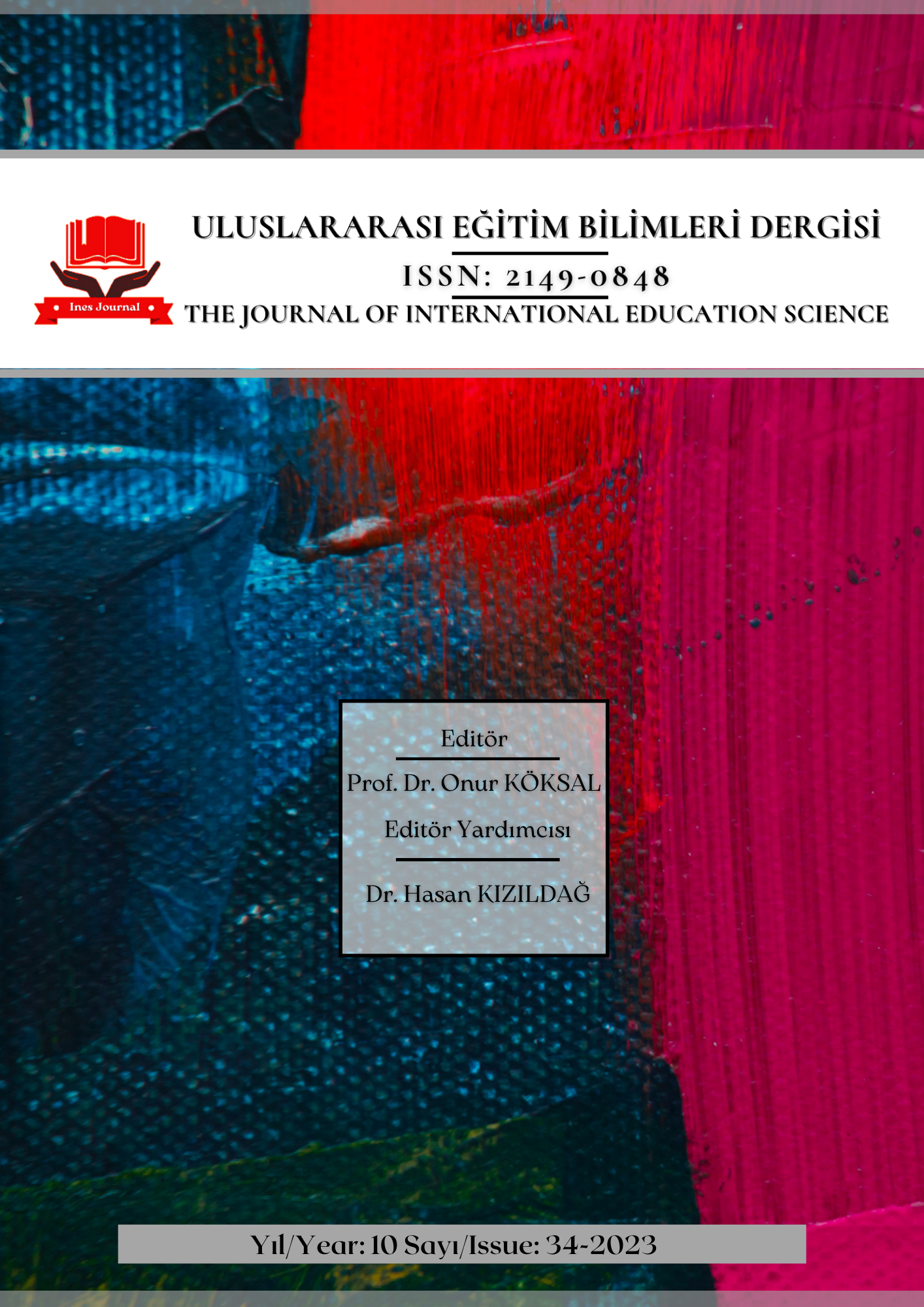Author :
Abstract
Bu araştırmada, Covid-19 sürecinde ergenlerin babalarına yönelik algılarının incelenmesi amaçlanmıştır. Bu amaç doğrultusunda araştırmanın çalışma grubunu, 2020- 2021 eğitim öğretim yılında Afyonkarahisar il merkezinde yer alan MEB’e bağlı liselerde öğrenim gören 533 adolesan oluşturmaktadır. Araştırmada veri toplama aracı olarak araştırmacılar tarafından oluşturulan ve araştırmaya katılan çocuklara ve ailelerine ilişkin Kişisel Bilgi Formu ve Babalık Ölçeği (BÖ) kullanılmıştır. Verilerin analizinde, veri setinin normal dağılım gösterip göstermediğine bakılmış, verilerin çözümlenmesinde yüzde, frekans, normallik testi, bağımsız örneklemler için t testi, tek yönlü varyans analizi ve farklılığın kaynağını test etmek için Post Hoc testlerinden yararlanılmış, aritmetik ortalama, standart sapma, F değeri, t değeri ve serbestlik düzeyi belirlenerek elde edilen veriler yorumlanmıştır. Covid 19 sürecinde gençlerin babalık algısının belirlenmesi konusunda yapılan analizler sonucunda çocukların yaşı, sınıfları, kardeş sayısı, annelerinin çalışma ve eğitim durumu değişkenlerinde babalık algılarına ilişkin istatistiksel olarak anlamlı bir fark bulunmamıştır. Bunun yanı sıra gençlerin BÖ’den aldıkları puanlara bakıldığında aile gelir düzeyi, anne baba medeni hali, baba eğitim durumu, babanı çalışıp çalışmaması ve gençlerin kiminle yaşadığı değişkenlerine göre istatistiksel olarak anlamlı fark olduğu görülmektedir.
Keywords
Abstract
In this study, it was aimed to examine adolescents' perceptions of their fathers during the Covid-19 process. In line with this purpose, the study group of the research consists of 533 adolescent children (young people) studying in high schools affiliated to Turkish Ministry of National Education in Afyonkarahisar city center in the 2020-2021 academic year. The Personal Information Form which was created by the researchers and Fatherhood Scale (FS), were used as data collection tools. In the analysis of the data, it was checked whether the data set showed normal distribution or not before percentage, frequency, normality test, t test for independent samples, one-way analysis of variance and Post Hoc tests were used to test the source of the difference, and the data obtained by determining the arithmetic mean, standard deviation, F value, t value and level of freedom were tabulated and interpreted. As a result of the analyzes conducted to determine the perception of fatherhood of young people in the Covid-19 process, no statistically significant difference was found in the variables of children's age, grades, number of siblings, mother's employment, and education status regarding their perceptions of fatherhood. In addition, when we looked at the scores of young people from the FS, it was seen that there was a statistically significant difference according to the variables of family income level, marital status of parents, father's education level, whether the father was working or not, and with whom the young people.
